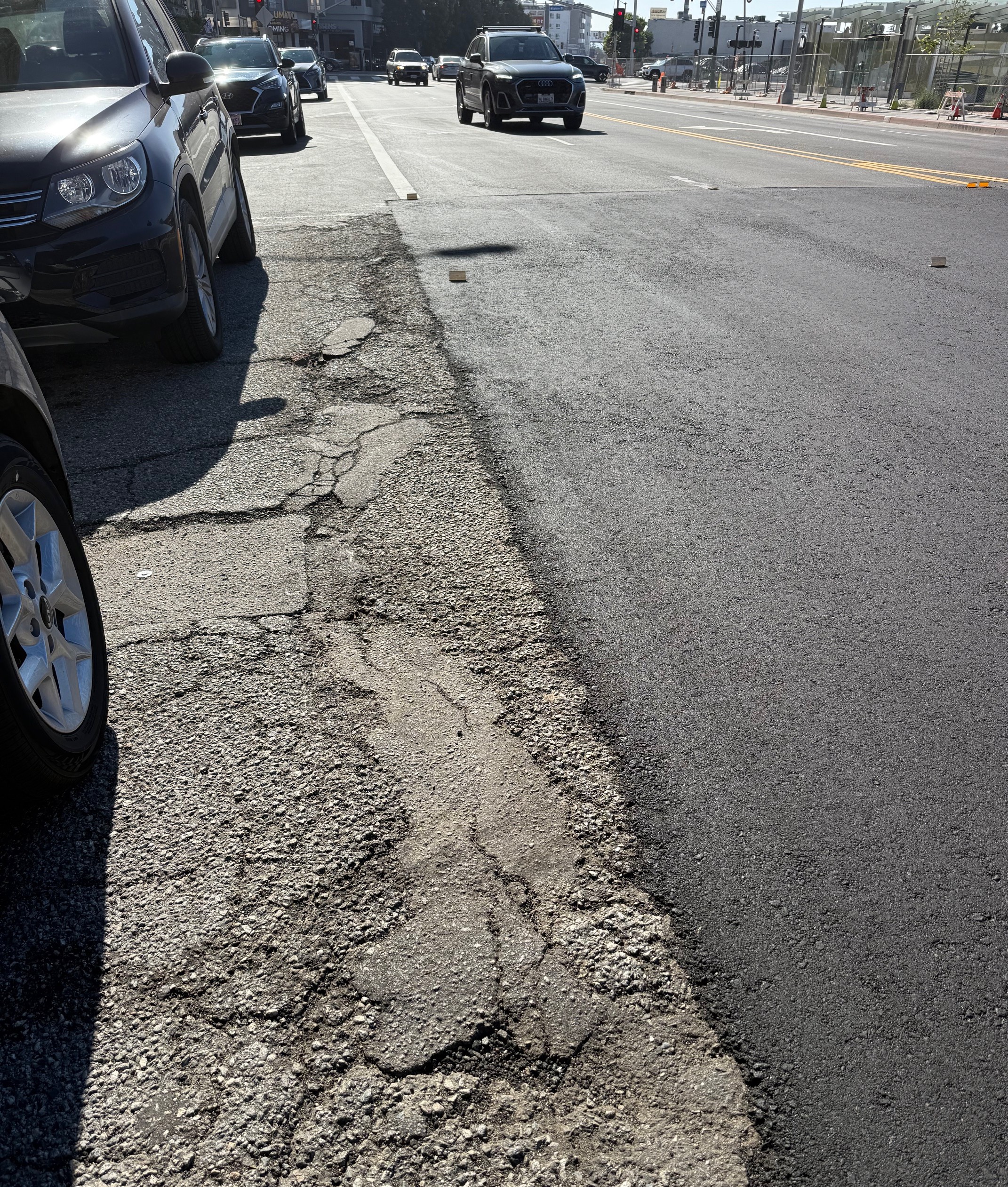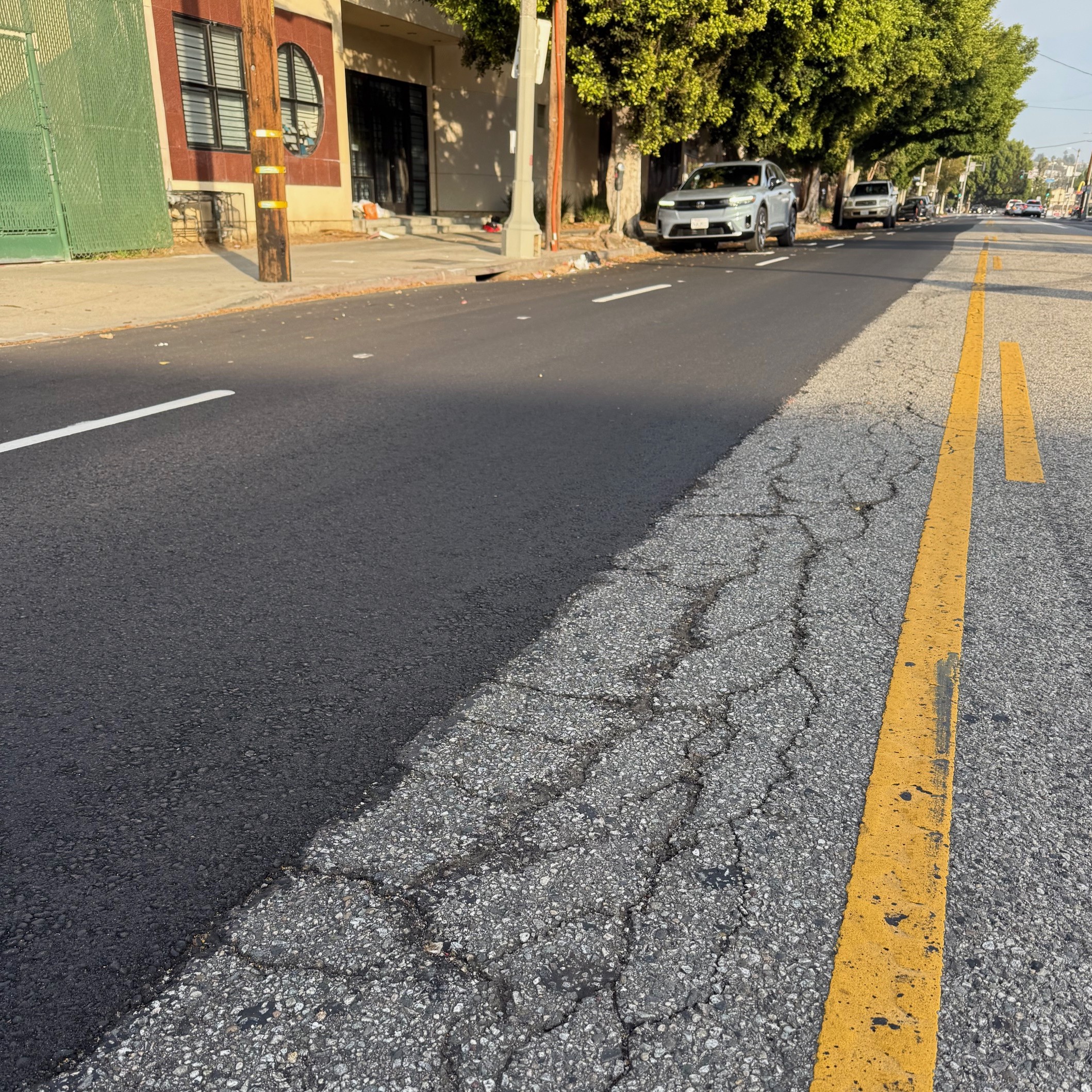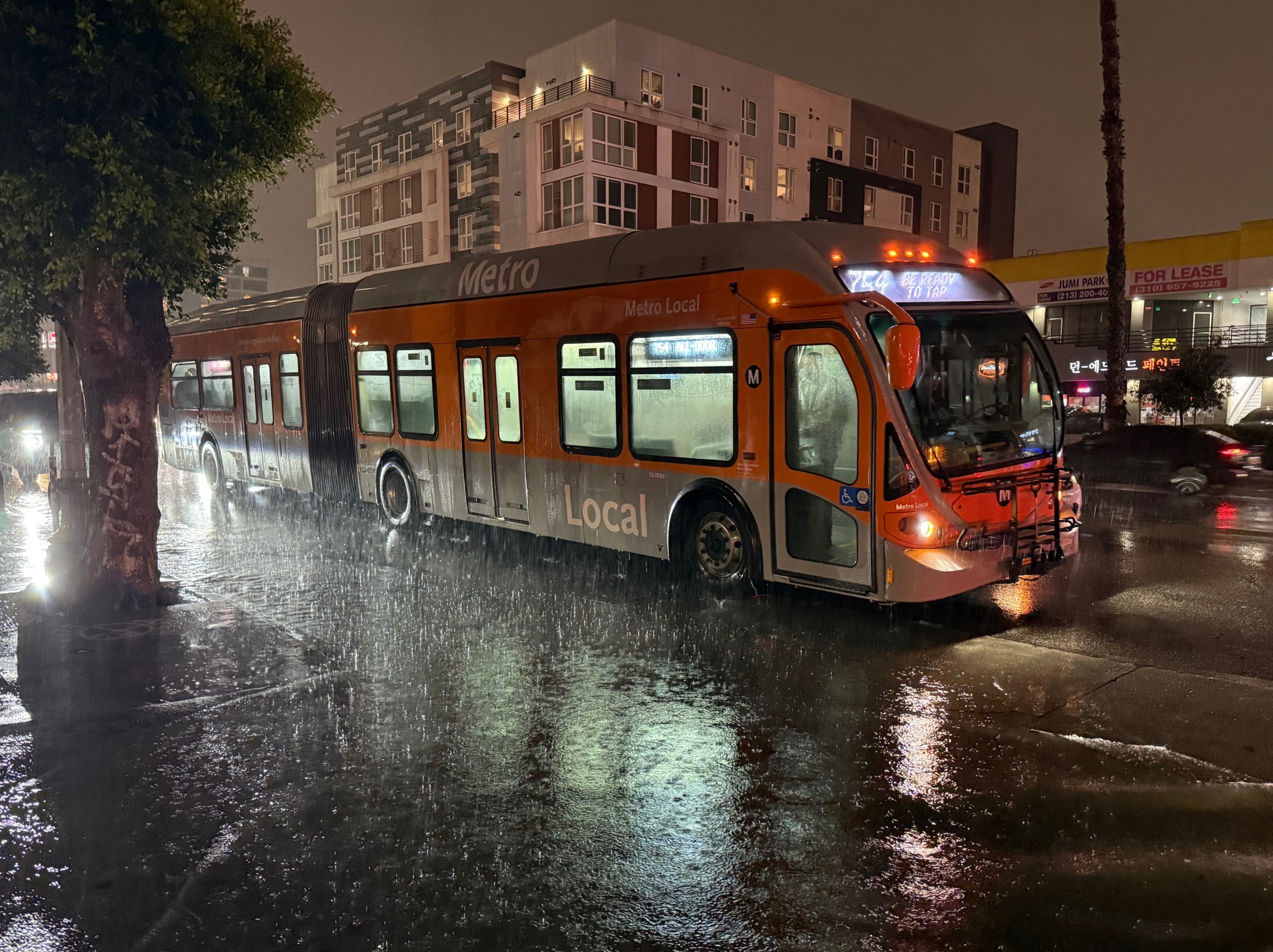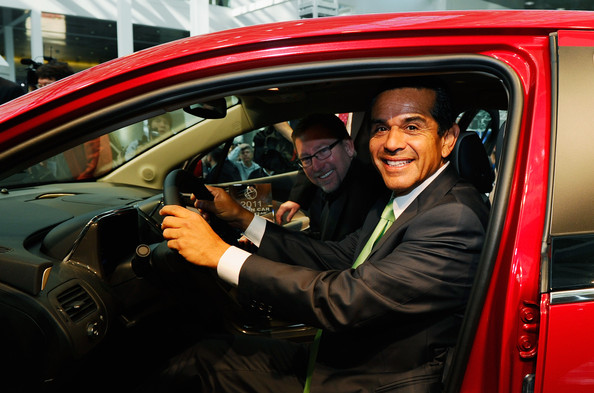
Picture this. One day one of the most important political figures in the city stands in front of a major Downtown attraction and announces that train service to this attraction will be increased dramatically in the coming weeks. The next day, a major political figure, flanked by an up-and-coming political star and the City Council President, stands with the head of the local automotive dealer lobbying group and announces a political proposal to end business taxes for car dealerships.
In most parts of the world, that would be a sign of a hot political campaign with two candidates offering competing visions for a city's transportation future. In Los Angeles, it's just two days in the life of Mayor Antonio Villaraigosa. While car dealerships are praising the Mayor's proposal, supporters of green transportation options are puzzled by today's announcement.
"This city can't take too many more of Mayor Villaraigosa's 'business friendly' policies," writes Alex Thompson, President of Bikeside. "The guy extends Metro hours one minute, and decides he wants more car dealerships the next."
Earlier today, Villaraigosa, Council President Eric Garcetti and Councilman Mitch Englander stood toe-to-toe with the car dealership lobby and announced a plan to end local business taxes for car dealerships operating in the City of Los Angeles. The plan makes sense from a short-term economic point of view. Auto dealers produce substantially more sales tax than business tax. In 2010, auto dealers accounted for only $3.6 million in business tax revenue but $29 million in sales tax revenue.
But the three pols see a potential sales tax boom if they can convince the car dealerships that have fled the city for Glendale, Pasadena, and Beverly Hills to come back. Since 1986, the City of Los Angeles has lost 95 auto dealers. If those 95 dealers were still operating within the City limits, Los Angeles would have an additional $57 million per year in sales tax revenue. In addition to the new tax proposal, Villaraigosa also announced that Beverly Hills Porsche is moving from Beverly Hills to Los Angeles. The Mayor's Office of Economic and Business Policy helped to persuade Beverly Hills Porsche to come to Los Angeles by pulling department directors together and speeding the permitting process.
"For too long, LA's business tax has driven auto dealers outside the City limits," said Villaraigosa. "It's time to reform the way we tax auto dealers so that we can bring more jobs and more sales tax to our City.”
Before Villaraigosa can sign a law exempting new car dealerships, the City Council would first have to sign off on a yet-to-be-drafted ordinance before the Mayor could sign the proposal into law. Garcetti and Englander will introduce a motion asking city staff to draft such an ordinance at tomorrow morning's City Council meeting.
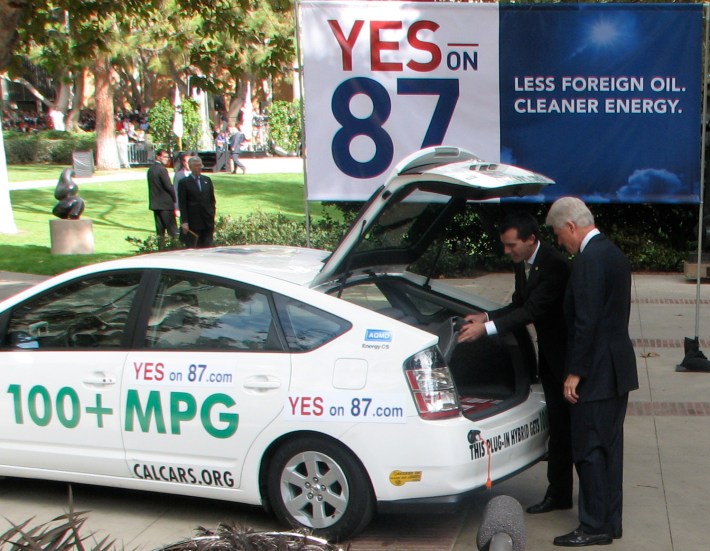
The public relations blitz to attract new car dealers was timed to come in advance of the LA Auto Show which takes place from Nov. 18-27 in the Convention Center. Unfortunately for anyone looking to score political points off the exemption, it also comes a week after the Los Angeles Times decimated the Buy Here Pay Here used card industry which preys on poor people desperate for a car by trapping them in a cycle of debt and car dependency. I've asked the Mayor's office if their proposal would include used car dealerships and Buy Here Pay Here dealerships, but have yet to hear back from them. An unintended consequence of this proposal could be to bring more of these vampire lenders and car dealers to the city further impoverishing those of lesser means and decimating the tax base of those already underemployed.
If the proposal doesn't include tax exemptions for used car dealerships, then the Mayor and Council face accusations of providing tax breaks for businesses that only benefit top wage earners and not those selling products to the middle class. And what about the message this sends the transit dependent who have already seen massive service cuts and fare hikes in recent years? Subsidies for a Porsche dealership but fare cuts for the transit dependent? And if will subsidize car dealerships, how about bike shops and footwear companies?
"If I had to speculate, I'd guess the Mayor's economic development team haven't talked with his transportation team, so one hand has no idea what the other is up to," Thompson continues.
For their part, Garcetti and Englander pushed the idea that eliminating the tax on car dealerships is really a first step in eliminating the business tax altogether.
“Having owned a small business in Los Angeles, I know how difficult it is for them to get by,” writes Englander. “Every dollar makes a big difference. Eliminating the gross receipts tax is a crucial incentive that can help bring new businesses to Los Angeles and help existing businesses stay and thrive, create jobs and breathe life into our economy. Eliminating the gross receipts tax for new car dealerships is the perfect first step because they generate so much sales tax revenue and jobs.”
“It's time to stop surrounding cities from using L.A.’s broken tax system to lure businesses and jobs away from us,”writes Garcetti. “Targeting car dealers is a big first step. But we must eliminate the business tax all together. L.A.’s costly and cumbersome tax scheme is one that taxes businesses even when they lose money. If we’re going to get our economy back on track, it’s simply got to go.”



